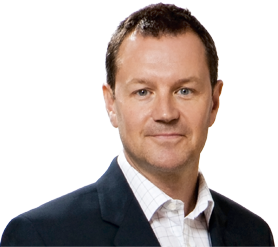Using simple, powerful syntax, the former Microsoft boss outlined his family’s mission to eradicate poverty, ignorance and illness around the globe. The Bill & Melinda Gates Foundation is using the combined wealth of fellow moguls, relationships with pharmaceuticals chief executives (such as GlaxoSmithKline’s Sir Andrew Witty) and the latest marketing/PR techniques to achieve what many governments have failed to do. Gates sincerely believes that the number of truly poor nations could be reduced from 50 now to just three over the next decade, and that diseases such as polio can be defeated.
Thanks to aggressive journalism and the transparency of the internet, brands are scrutinised as much as legislators
It was a timely reminder, on the eve of this year’s Advertising Association Lead conference, that business and brands can be a force for good. Indeed, one senses that we may have reached a tipping point.
Edelman’s 2014 Trust Barometer recently confirmed that trust in business continues to grow while that in government declines. Could it be that the corporate world can now claim a greater mandate in tackling social and environmental problems than politicians?
We implicitly trust people such as Gates and Warren Buffett because, by giving most of their wealth away, they are clearly not in the ethics business for private gain – a fault we often suspect among politicians.
The Lead event today (Thursday) focuses on the economic benefits of advertising, which are without doubt manifold. Investment in advertising does build strong brands, encourage exports and create jobs. And the industry does indeed require improved political support to perform this function.
But, ironically, brands no longer need politicians to take the ethical lead. Arguably, thanks to the combination of aggressive journalism and the brutal transparency of the internet, they are scrutinised just as frequently and robustly as legislators.
The difficulty lies in whether we can trust the next wave of business leaders, as they climb to the top, to act in this wider interest. Interestingly, the successors to Gates and Buffett could be today’s marketing directors, chief communication officers or media owners.
One can only hope that they’re aware of this emerging nexus where corporate success, customer-centricity and social improvement can be aligned as one. It certainly requires a brave attitude towards marketing and communications and an open-minded C-suite. But maybe, just maybe, we are starting to see corporate standpoints that, quite literally, change everything.
danny.rogers@haymarket.com
@dannyrogers2001



